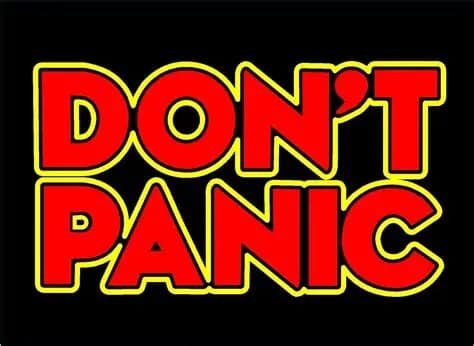Why a Book About a Talking Towel Might Be the Smartest Thing in the Universe
When Douglas Adams published The Hitchhiker’s Guide to the Galaxy, few suspected that a story involving grumpy bureaucratic aliens, digital books with reassuring covers, and an emotionally unstable robot would become one of the most iconic sci-fi works of the 20th century. But it did, and not just because it’s funny.
It’s brilliant because behind the nonsense lies a terrifyingly honest take on life, death, and the terrifying indifference of the cosmos.
A World Obliterated in Chapter One
Let’s start where the book does: with Earth being casually destroyed by a race of officious aliens called the Vogons, who are building a hyperspace bypass. Arthur Dent, a mild-mannered Englishman, escapes just in time, in his dressing gown, and is thrust into a universe that is, at best, bemused by his existence.
This isn’t just a gag. It’s a thematic mic drop.
In obliterating Earth in the opening pages, Adams is making a brutally clear point: human life is not the centre of the universe. In fact, it barely registers. Bureaucratic oversight has more cosmic power than all of humanity’s dreams.
The Fermi Paradox and the Vogon Planning Office
This moment also serves as a wickedly clever satire on the Fermi Paradox — the question of why, in a galaxy teeming with stars and planets, we’ve found no sign of intelligent alien life.
If intelligent life is common, where is everyone?
Adams offers an answer:
They’re out there. They just don’t care.
In the novel, the destruction of Earth was entirely legal. The plans were on display, inconveniently located four light-years away in Alpha Centauri. The implication? Humanity wasn’t wiped out because aliens were evil. We were simply in the way. And we didn’t read the galactic terms and conditions.
So while scientists wonder about filters, signals, and propulsion systems, Adams suggests something much more human:
The universe is full of life, it’s just run like a city council.
Facing Mortality with a Sardonic Smile
Hitchhiker’s doesn’t dwell on death. It trivialises it, not in a dismissive way, but in a way that reveals the absurdity of our obsession with meaning. Arthur Dent doesn’t reflect on the loss of billions of lives. He wonders if there will be tea. This, too, is the point.
Nowhere is this better illustrated than in the Total Perspective Vortex, a device that shows a person their exact place in the universe. Anyone who sees it instantly goes mad because they’re confronted with their overwhelming insignificance.
It’s a satirical response to our fear of death: we worry that our lives won’t matter. Hitchhiker’s says, cheerfully:
They don’t. And that’s OK.
Once you realise the universe doesn’t care, you’re free to care for yourself, your friends, and your towel.
The Answer to Life, the Universe, and Everything
And of course, there’s 42.
After 7.5 million years of calculation, the supercomputer Deep Thought delivers the ultimate answer to life, the universe, and everything… and it’s a number. A joke so deadpan it becomes philosophical.
The absurdity of “42” mocks our desperate need for neat answers. It suggests that maybe the problem isn’t that the universe is meaningless, it’s that we’re asking the wrong questions.
Legacy: The Smartest Stupid Book ever Written?
At first glance, The Hitchhiker’s Guide appears to be just a string of absurd set pieces: a depressed robot here, a space whale there, an infinite improbability drive that turns missiles into bowls of petunias. But underneath the jokes is a biting, often bleak reflection on cosmic apathy and human egotism.
And that’s what makes it brilliant.
It laughs at bureaucracy, ridicules religion, satirises science fiction clichés, and still manages to feel deeply human. It’s a book about the end of the world that somehow makes readers feel better about being alive.
Final Thoughts: DON’T PANIC
If The Hitchhiker’s Guide to the Galaxy has a central message, it’s right there on the cover of the titular guidebook:
“DON’T PANIC.”
Not because things aren’t bad. They often are. But because panic gets you nowhere, and there’s tea to be made.
In the end, Hitchhiker’s is a book that says:
You’re small, life is ridiculous, and the universe doesn’t care. But if you keep your towel handy and maintain a sense of humour, you might just enjoy the ride.






